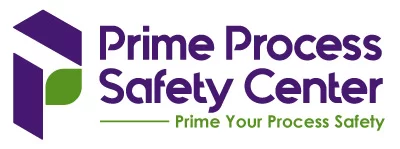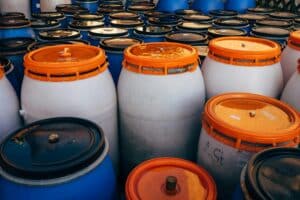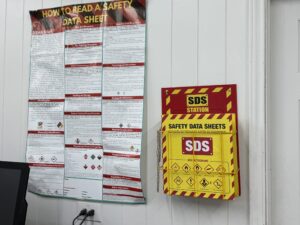We also offer
Chemical Compatibility Studies
Chemical compatibility studies are essential for ensuring the safe storage, handling, and processing of chemicals in industries such as chemical manufacturing, pharmaceuticals, and food and beverage production. These studies evaluate the potential interactions between different substances to identify and mitigate hazards associated with mixing, storage, and processing conditions.
Purposes of Chemical Compatibility Studies
1. Identifying Hazardous Combinations
Chemical compatibility studies help identify pairs or groups of chemicals that may react dangerously when combined, potentially leading to fires, explosions, or toxic gas generation.
2. Optimizing Storage and Handling Procedures
By understanding chemical compatibility, industries can design safer storage and handling systems, preventing accidental mixing and minimizing the risk of hazardous reactions.
3. Developing Safe Process Conditions
These studies provide insight into potential hazards under various temperature, pressure, and concentration conditions, helping engineers establish safe and efficient process parameters.
4. Complying with Regulatory Standards
Chemical compatibility studies are often required to meet regulatory compliance standards for the safe handling and storage of hazardous materials.
Methods for Chemical Compatibility Studies
1. Literature Review
Consulting scientific literature and Safety Data Sheets (SDS) provides valuable information on the compatibility of chemicals and their potential interactions.
2. Laboratory Testing
Controlled laboratory experiments can directly determine whether chemicals are compatible or incompatible under various environmental and process conditions.
3. Computational Modeling
Advanced computer simulations can predict potential hazards when mixing chemicals, providing insights into reaction pathways and energy release.
4. Expert Consultation
Engaging experienced chemical engineers and safety professionals ensures a practical understanding of compatibility results and safe handling procedures.
Benefits of Chemical Compatibility Studies
1. Preventing Accidents
Identifying and mitigating compatibility hazards helps prevent fires, explosions, and toxic releases, protecting workers, facilities, and the environment.
2. Improving Process Efficiency
Understanding compatibility enables safer process design and operation, minimizing downtime and enhancing productivity.
3. Enhancing Regulatory Compliance
Conducting chemical compatibility studies demonstrates due diligence and adherence to industry safety standards, reducing legal and financial risk.
4. Promoting a Safety Culture
A focus on chemical compatibility strengthens an organization’s commitment to safety, reducing overall risk and fostering safer work practices.
Why Perform Chemical Compatibility Studies?
Conducting thorough chemical compatibility studies allows industries to reduce the risk of chemical accidents, protect personnel and equipment, and ensure compliance with environmental and safety regulations. By incorporating study findings into safe handling and storage practices, organizations can operate more sustainably and responsibly.
Why Choose Prime Process Safety Center
-
Expertise: Our team has specialized expertise in process safety and chemical compatibility studies, providing accurate and reliable assessments.
-
Comprehensive Approach: We cover every aspect of the study—data review, laboratory testing, and hazard analysis—to ensure complete understanding and mitigation of risks.
- Accredited Reliability: Our work is supported by an ISO/IEC 17025:2017 accredited laboratory, ensuring the highest level of technical competence and data quality.
-
Timely and Efficient: We prioritize on-time delivery without compromising accuracy, helping clients minimize process downtime and disruption.
-
Collaborative Process: We work closely with clients throughout the project, ensuring results that align with their operational needs and safety objectives.
Partnering with Prime Process Safety Center ensures a dependable, science-based approach to chemical compatibility, helping your organization operate safely, efficiently, and in compliance with industry standards.
FAQ
Q1: What is a chemical compatibility study in process safety?
A chemical compatibility study is an assessment conducted to determine the compatibility of different chemicals in a process or system. It helps identify potential reactions or hazards that may occur when two or more chemicals come into contact with each other.
Q2: Why is a chemical compatibility study important?
A chemical compatibility study is important to prevent unwanted reactions, such as fires, explosions, or toxic releases, that can result from chemical incompatibilities. It helps in designing safe operating conditions and selecting appropriate equipment and materials.
Q3: What are the key benefits of conducting a chemical compatibility study?
The benefits of a chemical compatibility study include reducing the risk of chemical reactions and associated hazards, ensuring the selection of compatible materials, preventing equipment failures, and enhancing overall process safety.
Q4: How is a chemical compatibility study performed?
A chemical compatibility study is performed by reviewing available chemical data, conducting laboratory testing, and analyzing the potential reactions between chemicals. This may involve literature reviews, material testing, or consulting experts in the field.
Q5: What can a chemical compatibility study reveal about process safety?
A chemical compatibility study can reveal information about potential reactions or hazards when different chemicals come into contact. It helps identify incompatible combinations, recommend preventative measures, and establish safe operating procedures.
Q6: Are there specific regulations or standards that require a chemical compatibility study?
There are various regulations, such as OSHA's Process Safety Management (PSM) standard, that require employers to evaluate and control potential hazards associated with chemical reactions. Conducting a chemical compatibility study helps comply with these regulations.
Q7: What challenges are associated with conducting a chemical compatibility study?
Some challenges include obtaining accurate chemical data, performing required laboratory testing, considering all possible chemical combinations, and evaluating the impact of process conditions on compatibility.
Q8: Can software tools be used for chemical compatibility assessments?
Yes, there are software tools available that can help assess chemical compatibility. These tools provide databases of chemical compositions, compatibility tables, and prediction models to assist in identifying potential hazards.
Q9: Is it necessary to have specialized expertise to conduct a chemical compatibility study?
Conducting a chemical compatibility study requires knowledge of chemical properties, reactions, and process safety principles. It is recommended to have specialized expertise or collaborate with experts in process safety and chemistry for accurate and reliable results.
Q10: How often should a chemical compatibility study be conducted?
A chemical compatibility study should be conducted whenever there are changes in process conditions, introduction of new chemicals, modifications to equipment or piping systems, or as part of regular process safety evaluations. The frequency will depend on the specific industry and process requirements.















